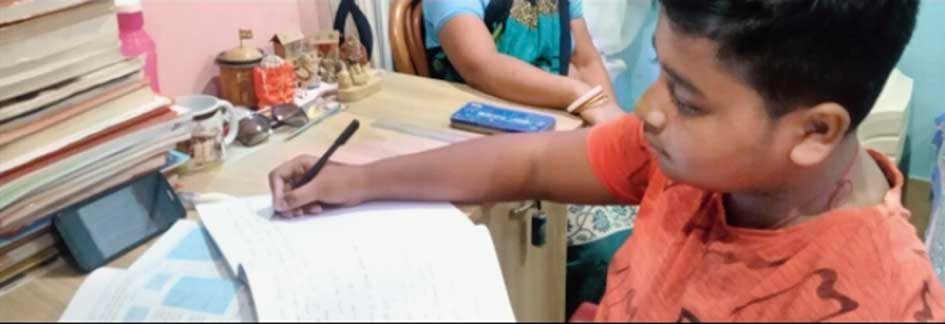The idea of online classes for students in the time of Covid-19 has hit the economic class barrier.
At present, nearly 30 lakh students in the state are taking online classes from about one lakh teachers. Of these students, around 25-30 per cent are economically disadvantaged. They are mostly from the interiors of Assam and do not have access to smartphones and other hi-tech devices.
While elite students in the city, who have access to high-end android devices, are effortlessly adapting to e-learning, state education facilitators are now battling to help out the disadvantaged.
B. Kalyan Chakravarthy, principal secretary in the education department and mission director of Samagra Siksha Abhiyan (SSA), Assam, told The Telegraph, “We are broadcasting an audio-based radio learning programme on All India Radio from today (Monday) where academic experts will lecture on courses, subject-wise and class-wise, for elementary-level students.”
He said he would hold a Zoom conference with all inspector of schools, district elementary officers, programmers, community mobilisation officers and teacher- training officers on Tuesday to take stock of the situation.
Inspector of schools and district elementary officer, Kamrup (metro), Buli Gogoi Bhuyan, said, “We are trying to help by asking the students’ relatives or neighbours to lend them phones for some time.”
Education officials have been asked to submit data, including contact numbers, of students and teachers in the state to the SSA office before April 10 to ensure that every student is connected.
The government is working on making App-friendly modules for elementary to high secondary-level students. A question-and-answer data bank for board and competitive examination courses will be implemented soon. More than 100 WhatsApp groups have been created and videos uploaded on YouTube to facilitate teacher-student coordination.
Rahul Sarma, assistant teacher of arts with Batiporiya High School in Golaghat, said more than 75 per cent children in the district were benefiting from the online classes. He said a Google classroom initiative had been taken up as a pilot project for judging the best App services for online classes. “It will require students to download the Google App on their smart phones. Some students in Golaghat have already accessed Google classroom,” he added.
Jaydip Debnath, a Class X student of Natun Fatasil Town High School who will appear for his board exams next year, said, “My parents are daily wage labourers. I have a normal phone. There is no food at home, how can I buy an android phone to pursue e-learning?” Principal Purabi Kalita said Jaydip, who is a class topper, was borrowing his friend’s android phone to stay in tune with his studies but could not do so on a regular basis.
Kajol Das, a class X student of Cotton Collegiate Government HS School, Guwahati, is happy that e-classes are being held.
Chakravarthy also said, “We have chalked out an innovative syllabus to create awareness about the virus.”










